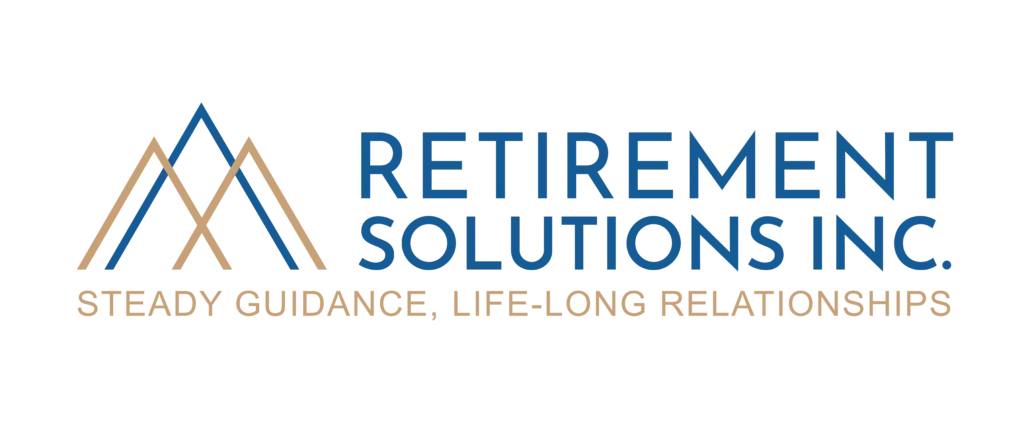MAXIMIZE YOUR RETIREMENT
Expert Guidance from San Diego's Best Succession Planning Team
Navigating Retirement:
The Complex Challenges of Selling Your Manufacturing or Construction Business
There are several challenges that can arise when using the sale of a manufacturing or construction business as a plan to retire, including:
Finding the right buyer: Finding a suitable buyer who can afford to purchase the business at a fair price and who has the necessary experience and skills to run the business can be challenging.
Timing the sale: Knowing when to sell the business can be difficult. Waiting too long to sell can result in a decline in the value of the business, while selling too early may mean missing out on potential growth opportunities.
Valuing the business: Determining the fair market value of a manufacturing or construction business can be complicated. It requires a comprehensive analysis of the business's financial statements, assets, liabilities, and market conditions.
Managing taxes and fees: Selling a business can trigger various taxes and fees, including capital gains taxes, income taxes, and transaction fees. Managing these costs can be complex and requires careful planning.
Creating a retirement income stream: After the sale of the business, retirees must create a sustainable income stream to fund their retirement. This can be challenging, especially if they have not planned ahead and do not have other sources of retirement income.
Overall, selling a manufacturing or construction business can be a complex process, and retirees must navigate a range of challenges to secure a successful retirement.
Transform Your Business Sale into a Strategic Retirement Plan
Work with Our Financial Planners to Sell Your Business and Plan for the Future
A financial planner who is an expert at helping a business owner use the sale of their business as a vehicle to fund their retirement typically possesses a combination of skills, experience, and knowledge that enables them to provide comprehensive and strategic advice.
Here are a few key factors that can make a financial planner an expert in this area:
Business expertise:
An expert financial planner should have a deep understanding of the business sale process, including business valuation, preparing the business for sale, finding and negotiating with potential buyers, and the tax implications of a sale.
Retirement planning knowledge:
A financial planner should also be well-versed in retirement planning and understand the unique challenges of funding a retirement from the proceeds of a business sale, such as creating a sustainable income stream and managing investment risk.
Experience with complex financial strategies:
The expert planner should have experience with complex financial strategies, such as tax planning, estate planning, and asset protection, to help ensure that the business owner's retirement plan is comprehensive and effective.
Communication skills:
A skilled financial planner should be able to communicate complex financial concepts in an accessible way, listen actively to the business owner's goals and concerns, and work collaboratively with other professionals, such as lawyers and accountants, to ensure a coordinated approach to the sale and retirement planning process.
Overall, a financial planner who is an expert in helping business owners use the sale of their business as a vehicle to fund their retirement should possess a unique combination of skills, knowledge, and experience, and be able to provide personalized and strategic advice to help business owners achieve their retirement goals.
From Sale to Retirement
A Comprehensive Guide
Planning for retirement can be a daunting task, but it is a critical step towards achieving financial security and peace of mind in your golden years. The good news is that it's never too early or too late to start planning. With a few key steps, you can craft an ideal retirement that meets your unique goals and needs.


3 CRITICAL ANSWERS FOR ENTREPRENEURS READY TO SCALE OVER $1M
HIGH TAX. ZERO TIME. BIG REVENUE GOALS.
As you grow your business to $1 million and beyond, the teams and systems that got you to your million-dollar goal aren’t going to be enough to get you to your next goal.
You’re a successful entrepreneur ready to reach that next revenue goal and scale up. Less than 10 percent of small businesses (under 500 employees) achieve $1 million in annual revenue, so you’re already ahead.1
You’re looking forward to climbing even greater mountains in your business, but it’s not clear what you need to successfully make the trip. While you want to reduce taxes on your business, you may feel you can’t talk about it in the current business environment. You might not be sure that you’re paying the right amount in taxes for the revenues you’re generating now, and want to make sure you are not overpaying as you scale.
You’re already considering strategies to grow your operation, while at the same time you’re busy running your business. Or maybe you know there’s valuable information in your financial reports, but you don’t have time to analyze it. Yet as an entrepreneur, you’ve got to justify your investments.
No ROI, no investment.
Is it worth it to spend tens of thousands of dollars to potentially save less on taxes and expenses? You want to invest as much as you can into the growth of your business.
You’ve probably read a number of books already on taxes and how to reduce them — and discussed them with your colleagues, too. You’re already aware of many tax-saving strategies, such as maxing out retirement and HSA accounts, taking all the deductions you’re entitled to, and hiring your children.
Instead of stressing over taxes and trying to figure out ways to save on them, you get the most “bang for your buck” from working on your business and generating strategies for success. In order to scale, you might need some advice to help you achieve your next big revenue goal.
If you’re concerned that the current state of your finances is creating a hurdle on your business growth journey, you’ve come to the right place. This mission-critical guide is designed for entrepreneurs just like you who have high expectations for their business and are concerned that they’re not making the right financial decisions about taxes and other costs. You’ll discover the key answers you need to ask in order to scale that next revenue peak.
You may be asking yourself things like:
What is getting in the way of achieving my next business goal?
Am I paying too much in taxes for the revenues I generate?
Do I understand my company’s financial picture at a high level?
Is there anything in my financials that could hinder or block the growth of my business?
Is my financial professional helping me collaborate with other professionals who have the knowledge to help me grow my business?
If any of these questions resonated with you, keep reading…
SCALING QUESTION #1:
ARE YOUR TAXES TOO HIGH RELATIVE TO REVENUE?
The past few years have revealed how little tax billionaires pay, which has made quite a few people angry! You’re paying your taxes, but in this atmosphere you don’t want to be attacked for paying too little. Yet, you provide jobs for people in your community and contribute to the economy, so there’s no reason for you to pay too much in taxes either.
Every time you pay your quarterly estimates you might be wondering if you’re paying too much. But is it worth the money to hire an employee who could potentially save you more on taxes? Or to spend your own valuable time on something that isn’t a key strength of yours?
Or maybe you’re pretty confident that your tax professional is helping you squeeze out as much in deductions as possible right now. But they may not be the right pro when you start scaling up and the landscape changes. Not only is it important to know how to save money on taxes and expenses right now, but also in the future.
You’ve probably collected a lot of tidbits about saving money on taxes from experience, books and articles you’ve read, podcasts you’ve listened to, and so on. But you don’t know what you don’t know.
More importantly, some of the advice is probably right for you and some of it isn’t. What’s going to get you to your next revenue peak and fulfill your business growth dreams is an overall strategy. Not a collection of suggestions that aren’t designed for your specific situation, or bits and pieces pulled at random from your reading and networking.
Being able to look at the big picture will help you determine whether or not you’re spending too much money given your revenue.
Critical questions you need to ask:
Do I know how much I spend on taxes and expenses?
Is there a clear blueprint for measuring expenses (including taxes) when growing my business?
Am I getting all the information I can from my expense ratios and reports to make smart decisions?
Does my financial professional help me see the larger picture from all the data?
SCALING QUESTION #2:
REALISTICALLY, WHAT IS YOUR CAPACITY FOR GROWTH?
When you look at your numbers, do they tell you that you’re ready to scale? You might need to build out some infrastructure in terms of systems. As an example, if your financial operations still involve spreadsheets, you’ve got some work to do if you want to scale!
Do you have the right structures in place to scale? Your current company’s framework might have served you well when you were a start-up, but it may not be the right one for your next growth target.
Look at the time aspect thoughtfully. Do you have the time to invest to grow your business? Or are you already stretched pretty thin? There may be tradeoffs in your life that you’re currently making that won’t be sustainable as you build out to the next level. For example, maybe you have the time to run your own financial projections when you work past dinnertime five nights a week, but your spouse and kids are starting to wonder what you look like!
You’ve been successful by not getting in your own way up until now. Be objective about what kind of growth you can sustain with your current team and operations. What needs to change as you ascend to the next peak in your business?
Critical questions you need to ask:
Are there any “holes” in my current operations that might need to be patched up in order to scale?
Am I at risk of burnout because I’m not delegating enough?
How will my next financial goal (or the one after that) change the way my business operates?
Is my financial professional experienced enough for the next challenge?
SCALING QUESTION #3:
WILL YOUR CURRENT TEAM HELP YOU ACHIEVE THE GROWTH YOU WANT?
Do your current employees have some slack in their day, which enables them to take on new responsibilities? Or are they already at max capacity? If the latter, you could be headed for burnout or experience the Great Resignation at your company. In 2021, nearly 4 million workers quit each month, so you don’t want to try to scale if your resources are already strained.2
If you are spending too much time on administrative work, trying to squeeze out a few more drops from tax and expense savings, you’re most likely wasting money. But you’re also wasting valuable time that would be better served by you creating new strategies for growth, influencing and leading your community, and all the things that only you as the business owner can do.
Another issue to consider is whether you have the right professionals for the next stage of your business. What got you to $1 million won’t get you to $10 million. Are your accountants, CPAs, lawyers, etc. experienced enough to support your growing business?
After all, large companies with billions in revenue and thousands of employees have an entire board of directors helping them make decisions! You don’t have to make the journey alone, but you do have to be smart about it.
Can you pull back from operations and view your business as a whole? An objective look at the company to see what’s working and what’s not can be extremely important, especially with someone you feel comfortable bouncing ideas off. Someone who helps you see the big picture, and also helps to wrangle your team of business professionals.
You’ll feel more confident in scaling up when you know other experienced people are also looking out for your business.
Critical questions you need to ask:
Is my current team (both employees and professionals) the right one to help take my business to the next level?
Am I at risk of burnout because I’m not delegating enough?
Do I have a knowledgeable colleague or mentor who provides an objective perspective?
Am I spending too much time coordinating lawyers and the like, which leaves me less time for my actual business?
Do I have access to a financial professional who is experienced enough to help me scale?
SCALE YOUR NEXT PEAK WITH THE RIGHT TOOLS AND TEAMS
As an entrepreneur, you’ve already reached a significant revenue peak. But you don’t want to stop there. You’ve got goals for growing your business, and you know you’ll need the right tools and teamwork to get there. You also know you’ve got to ensure your financials are ready for your business to grow.
No one really enjoys paying taxes, but quarterly tax time doesn’t have to be so dreadful… if you’ve got the right team in your corner.
As a good citizen, you’ve been paying your business taxes (unlike some other well-known business owners). You’ve been contributing to your community not only through paying taxes, but by giving your employees jobs and giving back in other ways. Paying your fair share in taxes seems pretty reasonable, but why pay more than you need? Especially when you are providing additional benefits through your business operations.
To reach your current level of accomplishment in your business, you have likely formed relationships with trusted professionals like an attorney and a CPA. You’ve probably also made some friends in the business community, and you might have a relationship with a mentor as well.
But as you’re planning your growth to reach the next revenue peak, you might wonder if you have the full team you need to take you higher.
Maybe you’re also feeling stretched thin. Spending too many hours on taxes and expenses? That doesn’t allow you a lot of time to strategize about the climb ahead…
It’s important to have financial professionals on your side who understand the kind of support entrepreneurs need as they reach new heights in their businesses. We have a wealth of experience and specific knowledge about entrepreneurs on a growth trajectory.
Not only do we help business owners evaluate the capabilities of their teams, we keep an experienced eye on the big picture. Book your free, personalized Ready to Scale Session with us today.
The ability to understand and interpret your business’ numbers will help you make the right decisions as you grow. You’ll be able to spot red flags such as overspending and high taxes before they can wreak havoc on your scaling strategy. And by staying on top of your financials, you might find that those meetings with your bookkeeper are no longer quite so painful!
You’ve taken the first smart step toward scaling your business past the $1 million mark. Now it’s time to take the next one by enlisting a financial professional who is on your side and capable of advising your growth-oriented business. Contact us now to schedule your free 1:1 Ready to Scale Session so you have the proper equipment to ascend that next peak in your business.

Contact Us:
Phone: 760-603-0700
5857 Owens Avenue, Suite 110, Carlsbad CA 92008
https://2rsi.com/
chelberg@2rsi.com
Links:
DISCLAIMER:
The content is developed from sources believed to be providing accurate information. The information in this material is not intended as tax or legal advice. Please consult legal or tax professionals for specific information regarding your individual situation. The opinions expressed and material provided are for general information, and should not be considered a solicitation for the purchase or sale of any security.
We take protecting your data and privacy very seriously. Click the following link to learn more from the California Consumer Privacy Act (CCPA) Securities offered through SagePoint Financial, Inc. (SPF), member FINRA /SIPC.
Investment advisory services offered through The AmeriFlex® Group, an Independent Registered Investment Advisor. SPF is separately owned and other entities and/or marketing names, products or services referenced here are independent of SPF.
Insurance services are offered through Scott Chelberg as a licensed agent independent of SagePoint Financial. California Department of Insurance License #0694123.
Investment products and services from this representative(s) available only to residents of Arizona (AZ),California (CA),Colorado (CO),Florida (FL),Georgia (GA),Kentucky (KY),Massachusetts (MA),Michigan (MI),Minnesota (MN),North Carolina (NC),Nebraska (NE),New York (NY),Ohio (OH),Oregon (OR),Pennsylvania (PA),South Dakota (SD),Texas (TX),Virginia (VA),Washington (WA).

The three-step process provides a clear and actionable plan for construction business owners who want to retire.
Owners can take control of their retirement and ensure that they're able to enjoy their golden years.
Financial Security
Peace of Mind
Flexibility and Control
Evaluate your business and assets:
The first step is to take a look at your construction business and determine what it's worth. This will involve taking inventory of your assets, such as equipment, property, and inventory, and evaluating your financial statements. You may also want to consider hiring an accountant or financial advisor to help you with this process.
Plan for succession:
Once you have a clear understanding of your business's value, it's time to start planning for succession. This may involve grooming a family member or key employee to take over the business, or it may mean selling the business outright. If you plan to sell the business, you'll need to identify potential buyers and work with a broker or attorney to draft a sales agreement.
Develop a retirement plan:
Finally, you'll need to develop a plan for your retirement. This may include investing the proceeds from the sale of your business, purchasing an annuity, or setting up a retirement account. You may also want to work with a financial advisor to ensure that you're maximizing your retirement income and minimizing your tax liabilities.
By following these three steps, construction business owners can take control of their retirement
and ensure that they're able to enjoy the fruits of their labor for years to come.
DISCLAIMER:
The content is developed from sources believed to be providing accurate information. The information in this material is not intended as tax or legal advice. Please consult legal or tax professionals for specific information regarding your individual situation. The opinions expressed and material provided are for general information, and should not be considered a solicitation for the purchase or sale of any security.
We take protecting your data and privacy very seriously. Click the following link to learn more from the California Consumer Privacy Act (CCPA) Securities offered through SagePoint Financial, Inc. (SPF), member FINRA /S IPC.
Investment advisory services offered through The AmeriFlex® Group, an Independent Registered Investment Advisor. SPF is separately owned and other entities and/or marketing names, products or services referenced here are independent of SPF.
Insurance services are offered through Scott Chelberg as a licensed agent independent of SagePoint Financial. California Department of Insurance License #0694123.
Investment products and services from this representative(s) available only to residents of Arizona (AZ),California (CA),Colorado (CO),Florida (FL),Georgia (GA),Kentucky (KY),Massachusetts (MA),Michigan (MI),Minnesota (MN),North Carolina (NC),Nebraska (NE),New York (NY),Ohio (OH),Oregon (OR),Pennsylvania (PA),South Dakota (SD),Texas (TX),Virginia (VA),Washington (WA).
